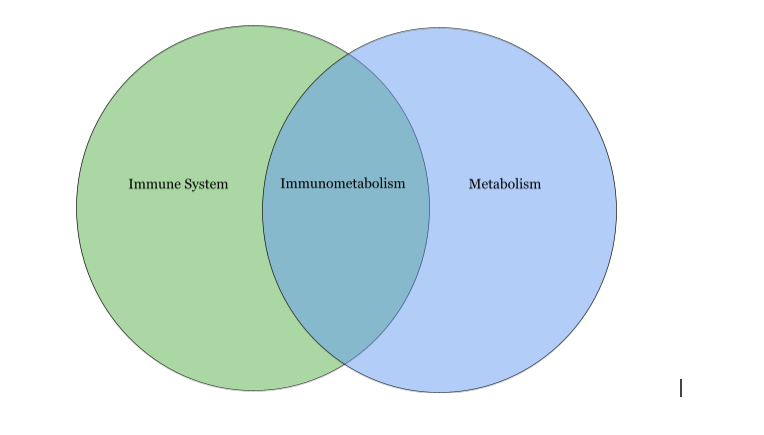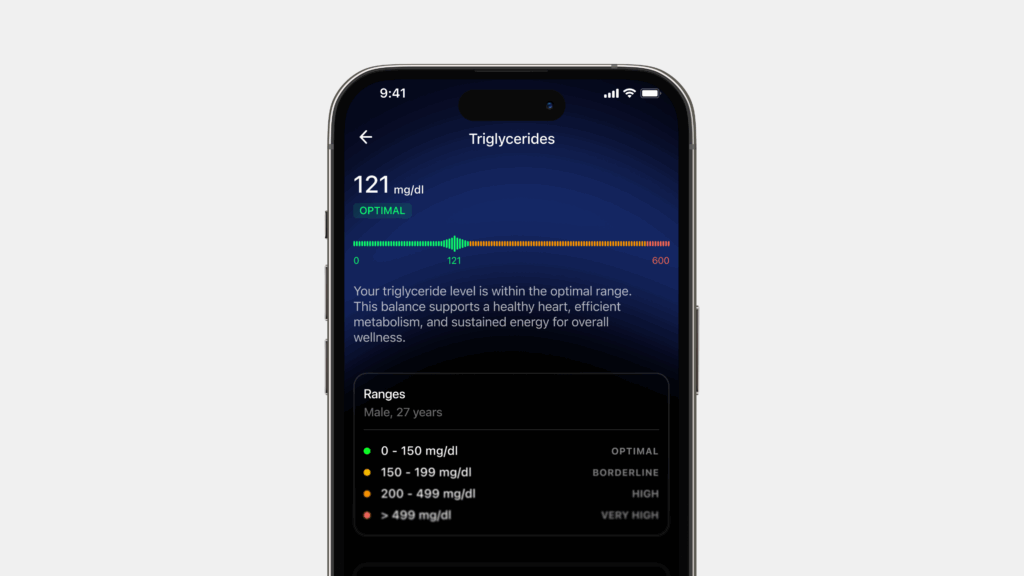Immunometabolism examines the interplay between immunology and metabolism, our life force. In this article, we’re going to take a look at what immunometabolism is and why it’s important to you. But before we start to peel back the layers on that, let’s go over some basic concepts first that’ll make understanding immunometabolism a lot easier.
For starters, what is your immunity?
Immunity refers to your body’s ability to fight off toxins that can lead to disease. The parameters of immunity consist of various factors in your blood and in your cells. Every single cell that makes up your immune system comes from bone marrow. Your cells flow throughout your bloodstream, can be found in locations like your spleen or lymph nodes, or disseminated throughout other parts of your body. There are three main types of immunity.
1.Innate immunity
You’re born with this type of immunity and it gives you general protection from harmful pathogens. Innate immunity acts as your body’s first line of defense against harmful pathogens. Stomach acid, inflammation, and even your skin or hair are all examples of innate immunity. Innate immunity includes phagocytic cells, which, according to Britannica, are cells that have the ability to ingest, and sometimes digest, foreign particles, such as bacteria, carbon, dust, or dye. Natural killer cells also aid in the fight against pathogens trying to enter the body by releasing cytotoxic proteins.
2.Passive immunity
Instead of your own immune system coming up with the antibodies to fight off a certain disease, you acquire passive immunity when you’re given the antibodies.
Two typical ways you receive this type of immunity are through childbirth and breastmilk. During pregnancy, as a woman’s blood circulates throughout her body, so do the immune system cells that contain the antibodies that a mother will pass onto her offspring. Babies can receive antibodies through breast milk, particularly through colostrum, which is rich in protein and provided to the child within the first few days after being born. The antibodies in Colostrum act as a safeguard to the intestinal surface.
Since your body doesn’t produce the antibodies, passive immunity is only temporary, and it will typically wear off in just a few weeks or months.
3.Active immunity
- Natural immunity: This is “learned” immunity. After your body is exposed to a certain disease, it “learns” how to fight off the disease for next time. This type of immunity has to do with immunologic memory, which is when your B-cells and T-cells “recognize” a harmful pathogen and become “activated” to fight off against it. Natural immunity is like taking a test. You might not do so well the first time, but you learn from your mistakes. The next time you take the test, you end up passing with flying colors.
- Vaccine-induced immunity: You’re given a vaccine that provides you with immunity from a certain disease or infection.
What is immunoregulation?
Immunoregulation can be defined as various processes by which antibodies may regulate immune responses. Your immune system is set up to fight off harmful pathogens that try to enter your body. Sometimes, that struggle comes at a cost, and your body might actually end up damaging itself in the process. Immunoregulation refers to your immune system’s ability to fight off harmful toxins and diseases while limiting damage to itself. It’s because of this “double-edged sword” that your immune system needs to be monitored closely.
What is metabolism?
Your body needs energy to function but where does that energy come from? It comes from your metabolism, which is a process where what you eat and drink gets converted into energy. Once your body creates energy, there are three primary ways you burn through it.
- Basal metabolism: Your body uses this energy for basic functions, like breathing or regulating hormone levels, while you’re at rest.
- Thermic effect of food: The amount of energy it takes for your body to break down its food.
- Physical activity: Your body burns energy whenever you exercise.
Interestingly, research shows that physical activity typically only represents about 10 to 30 percent of the calories you burn each day. Your basal metabolism burns the most calories each day for you out of the three (between 60 and 80 percent), with the thermic effect of food being responsible for roughly 10 percent of calories burned. (Read our blog to understand the basics of metabolism.)
What is immunometabolism?
Immunometabolism is a fast-rising field of study. It takes a look at how your immune system and metabolism interact with each other and analyzes the effects of those interactions.
For example:
When an immune response gets triggered in your body, your immune system relies on the energy created by your metabolism to fight off harmful pathogens. If you are taking care of your metabolic health, your body can create more energy to help your immune system fight off harmful toxins and pathogens.
Research on immunometabolism primarily focuses on understanding how different metabolic factors influence your immune health when it comes to certain diseases or conditions, like type 2 diabetes resulting from obesity, cardiovascular disease, and even cancer, just to name a few.
You can think of immunometabolism as a Venn diagram. On one hand, you have metabolism. On the other side, you have your immune system. The section in the middle where your metabolism and immune system overlap is your immunometabolism.

Why has immunometabolism gained importance?
The study of immunometabolism gives us new insight into immune health and disease. If we can change our metabolisms through diet, exercise, and other lifestyle choices, then it raises the possibility that we too should be able to boost our immune health through the same methods, considering immunometabolism is just an overlap of the two.
In addition, reprogramming immune responses through metabolic changes shows promise in the treatment of autoimmune diseases (conditions in which your immune system erroneously attacks your body). Metabolic changes are highly linked to cell activation and functionality during immune responses. The most dominant forms of metabolism in immune cells are glycolysis (the process in which glucose is broken down to produce energy), fatty acid oxidation (mitochondrial aerobic process of breaking down a fatty acid into acetyl-CoA units), synthesis, and the coupling of amino acids to these processes.
The need to produce energy is inherent to all cells within the body, however, when the immune response is initiated, activated cells undergo a significant metabolic switch to meet their increased energy and structural requirements for cell proliferation. Consequently, inflammatory/effector, regulatory and memory cells have distinct patterns of metabolic preferences across immune cell subsets. For example, activated effector T-cells have an anaerobic metabolism characterized by increased glucose metabolism and lactate production while oxidative pathways are suppressed, whereas regulatory T cells leverage Krebs cycle and oxidative phosphorylation.
What is metabolic health?
Metabolic health is described as having ideal levels of blood sugar, triglycerides, high-density lipoprotein (HDL) cholesterol, blood pressure, and waist circumference, without using medications.
Good metabolic health is also associated with:
- A healthy immune system,
- Being able to maintain a healthy weight,
- Sustained levels of energy,
- More endurance when you exercise,
- Mood stability and reduced feelings of depression and anxiety.
On the flip side of the coin, poor metabolic health can have a negative impact on your energy levels, mood, brain function, and weight. It can also put you at risk for developing chronic diseases like cardiovascular disease (such as heart attack or stroke), fatty liver disease, kidney disease, and much more.
Here are 5 metabolic health biomarkers you’ll want to keep track of:
- Blood sugar levels,
- Waist circumference,
- Blood pressure,
- Triglyceride levels,
- LDL cholesterol.
Implications of immunometabolism on metabolic health
Metabolic health is a key driver in understanding immunometabolism. That’s because your immunometabolism is based largely in part on your metabolic health.
Immunometabolism and blood glucose
A high-level view is that too much blood sugar (which oftentimes can result in diabetes) weakens your immune system. But to be more specific, high blood sugar (which is the result of your diet, sleep habits, exercise regimen, and stress level, among other things) disrupts blood cell function. White blood cells, also known as leukocytes, help your body fight off disease and infection. Types of white blood cells include:
- Monocytes: Their lifespan is long when compared to other white blood cells, with their main job being to break down bacteria.
- Lymphocytes (T-cells and B-Cells): They create the antibodies to fight off the harmful pathogens trying to get into your body.
- Neutrophils: These are the highest number of white blood cells, and are responsible for destroying bacteria and fungi.
- Basophils: These white blood cells set off the alarm when harmful pathogens try to enter your body. They produce histamine, which is an indicator of allergic disease.
- Eosinophils: They ward off cancer cells and help with your immune system’s response to allergies.
High blood sugar also throws off cytokine production in the body, which is essential in immune cell signaling and causes the immune system to become suppressed. In fact, one study found high blood sugar facilitated the production of pro-inflammatory cytokines, and suggests that this can impact your body’s ability to defend against microbial infections.
Immunometabolism and Obesity/Weight Gain
There are many studies out there that link obesity to impaired immune function.
Research shows that obesity can cause:
- An increase in leptin (hunger-suppressing, satiety hormone) levels (which is a pro-inflammatory),
- A reduction in adiponectin (an anti-inflammatory protein hormone), which has an impact on immune cells,
- Inflammation through various disruptions in the body caused by NEFA (Non-esterified fatty acids are molecules secreted by triglycerides through the action of the enzyme lipase and are conveyed in the blood to albumin. They make up for only a small proportion of the body’s fat but contribute to a large part of the body’s energy.),
- Hypoxia in body fat tissue across the body that gives way to an immune response and causes inflammation.
Obesity has been shown to speed up thymic aging, which can impact T-cell production and immune surveillance. One of the repercussions of an aging immune system is the process called thymic involution, where the thymus (specialized lymphoid organ of the immune system) progressively declines in size owing to profound changes in its anatomy associated with loss of thymic epithelial cells and a decrease in thymopoiesis. A downturn in T cell diversity is correlated with increased susceptibility to infection, autoimmune disease, and cancer.
Nosocomial, periodontal, and respiratory infections are considerable risk factors of obesity.
To sum things up, there is much correlation between inflammation in your body fat tissue, immune system function in the face of obesity, and metabolic issues.
Immunometabolism and inflammation
Inflammation can be defined as a process by which your body’s white blood cells and the things they make protect you from infection from outside invaders, such as bacteria and viruses.
When harmful pathogens try to get into your body, your white blood cells spring into action and swarm the harmful invader substances. This increases blood flow to the injury or infection site and it can cause redness, warmth, or might even result in swelling.
Acute inflammation, such as a common cold or headache, is short-lived. Chronic inflammation, however, can stay around for months or even years. Conditions like heart disease, diabetes, cancer, and Alzheimer’s disease have all been linked to chronic inflammation. In fact, more than 50% of all deaths can be traced back to inflammation-related diseases.
Overeating, which is undoubtedly detrimental to your metabolic health, can cause an immune response in your body that results in inflammation.
Many researchers believe that overeating can cause stress and damage to the mitochondria, which results from fatty acid buildup in cells. Metaflammation, or low-grade chronic inflammation spanning many years, can be the result of prolonged stress on the mitochondria.
The link between chronic inflammation and obesity
Immune cells going into the fatty tissue of people who are overweight or obese is said to play a role in causing inflammation. A study in the Journal of Clinical Nutrition noted weight loss to be a “determinant factor for reducing the level of pro-inflammatory markers.”
Leptin, an appetite suppressant hormone, plays an important role in the connection between weight and inflammation. High levels of chronic inflammation can cause higher levels of leptin in the body. Too much leptin in the blood can result in leptin resistance, which impairs your body’s satiety functions.
Immunometabolism and blood pressure/heart health
High blood pressure (which can present many problems for your heart) affects more than one billion adults in the world today. It is caused by an inflammation-induced obstruction in the pressure natriuresis relationship, defective vascular relaxation, and hyperactivity in the sympathetic nervous system. Pressure natriuresis is a system that deals with long-term control of pressure in your arteries. Renal perfusion pressure increases cause a reduction in sodium reabsorption and a rise in sodium excretion. Relaxing your blood vessels increases blood flow and circulation, which is key to optimal bodily function, as it provides your body’s essential organs with the oxygen and nutrients it needs to survive.
A key determinant in the severity of inflammation associated with high blood pressure is pro-inflammatory effector responses and responses of T-cells being compromised.
One study discovered a specific type of immune cell could help in determining hypertension risk.
Researchers used mouse models for the study, focusing on their macrophages. Macrophages are a type of white blood cell in the immune system whose main role is to “eat up” invader substances and clean up dead or damaged cells.
The study showed that macrophages also eat up molecules of endothelin, which is a hormone that can influence the narrowing of your blood vessels.
Controlling endothelin levels, in theory, should be able to help lower your blood pressure by relaxing your blood vessels.
To test this theory on humans, researchers examined individuals who took drugs to help with antineutrophil cytoplasmic antibody vasculitis, which is a condition known for damaging blood vessels. According to the research, drugs that reduced macrophage levels, such as cyclophosphamide, led to higher blood pressure levels in the subjects who took them.
While findings like these are promising, more research is needed on the subject to make a definitive conclusion on the impact of macrophages and endothelin on high blood pressure.
Autophagy and immunometabolism
Autophagy can be defined as a natural cellular mechanism by which the cells in our body degrade unnecessary or damaged components within the cell. In layman’s terms, it is your body’s process of replacing damaged cells with newer, healthier ones. As well, the autophagy process can benefit you in times of stress. When you get stressed out, your cells don’t receive the nutrients or oxygen they should. That’s where autophagy steps in and provides a substitute energy source to prevent your cells from dying off.
Keeping in mind that immunometabolism studies the link between your metabolism and your immune system, poor metabolic health can disrupt the autophagy process. Disrupting the autophagy process can have an effect on diseases that are built on inflammation, such as cardiovascular disease, liver disease, cancer, and certain metabolic disorders.
Autophagy: Friend or foe?
Research is inconclusive on whether or not autophagy is good or bad. It depends on the situation.
For example:
- Cancer: Autophagy can stop the progression of cancer by cleaning out damaged cell fragments, but can also allow tumor cells to remain in the later stages of cancer,
- Infections: Autophagy kills some pathogens, but other bacteria and toxins find a way around the autophagy process to reproduce and spread,
- Neurodegenerative diseases: Autophagy can help against neurodegenerative diseases like Alzheimer’s or Parkinson’s by destroying harmful proteins that build up in the brain. Conversely, autophagy may make it easier for certain proteins to reproduce inside the nerve cell, which can lead to deterioration.

Role of nutrition, exercise, and lifestyle on immunometabolism
Nutrition/diet and immunometabolism
Research has linked undernutrition to immunosuppression, which can leave you more susceptible to infection and put you at a higher risk for autoimmune disease. Overnutrition, on the other hand, corresponds with low-grade, chronic inflammation that puts you at a higher risk for metabolic and cardiovascular disease, among other things.
Cellular metabolism impacts immune cell function and immune cell function influences cellular metabolic state. Adipose tissue secretes a collection of hormones (adipokines) that signal key organs to maintain metabolic homeostasis, and their impairment has been causally linked to metabolic diseases. Adipocytokines perform a relevant role in the regulation of energy metabolism, glucose and lipid metabolism, reproduction, cardiovascular function and immunity.Adipocytokines play a crucial role in the link between nutrition and immunometabolism. Leptin, which we’ve discussed, can have an impact on immune cell number and function via its influence on cell metabolism.
The idea that immune cells will adapt their energy production to their function with particular metabolic pathways characteristic of resting, inflammatory or anti-inflammatory cells is galvanizing the field of immunology. Its links with metabolic rewiring are being examined. Research suggests that dietary intervention is a key source of energy, offering substrates to fuel different metabolic pathways. Protein, lipid and carbohydrate composition along with food additives can mould the immune response specifically in the gut, the first immune point of contact with food antigens and gastrointestinal tract pathogens. For instance, studies show that intermittent fasting can prevent the development of experimental autoimmune encephalomyelitis. The fasting response has been shown to reduce the lymphocyte pool in gut-associated lymphoid tissue to lessen energy expenditure, causing the decline of Immunoglobulin A (IgA) response.
Exercise and immunometabolism
Research shows that exercise can help you:
- Improve your metabolism,
- Improve your body’s defense system,
- Lower your risk of illness.
Exercise has also been shown to provide an anti-inflammatory effect. In fact, one study found that just a 20-minute workout session consisting of steady exercise can generate an anti-inflammatory cellular response.
Typically, your body doesn’t have an abundance of immune cells circulating around. Immune cells tend to flock to lymphoid tissues and organs like the spleen, where your body wards off pathogens.
As you workout, your muscles contract, which increases blood flow, lymph flow, and the movement of immune cells throughout the body. During exercise, your immune cells start to move faster and in higher numbers. Exercise even enlists the help of T-cells to help your immune system and aid in the fight against harmful pathogens.
Conclusion
Immunity translates into your body’s ability to ward off disease-causing toxins. Immunoregulation refers to various processes by which antibodies may regulate immune responses. Immunometabolism refers to how your immune system and metabolism interact with each other and analyzes the effects of those interactions. Research suggests that the adaptation of energy production by immune cells to particular metabolic pathways is set to revolutionize the field of immunology. Its links with metabolic rewiring are being examined steadily by the scientific community. Understanding how your diet, exercise, and lifestyle choices play key roles in your metabolic and immune health is key to living a metabolically healthy lifestyle.
Disclaimer: The contents of this article are for general information and educational purposes only. It neither provides any medical advice nor intends to substitute professional medical opinion on the treatment, diagnosis, prevention or alleviation of any disease, disorder or disability. Always consult with your doctor or qualified healthcare professional about your health condition and/or concerns and before undertaking a new health care regimen including making any dietary or lifestyle changes.
References
- htpps://ecampusontario.pressbooks.pub/immunizations/chapter/what-is-immunity/
- https://academic.oup.com/jn/article/137/3/773S/4664745
- https://www.britannica.com/science/phagocyte
- https://www.chop.edu/centers-programs/vaccine-education-center/human-immune-system/types-immunity
- https://openmd.com/define/immunoregulation







